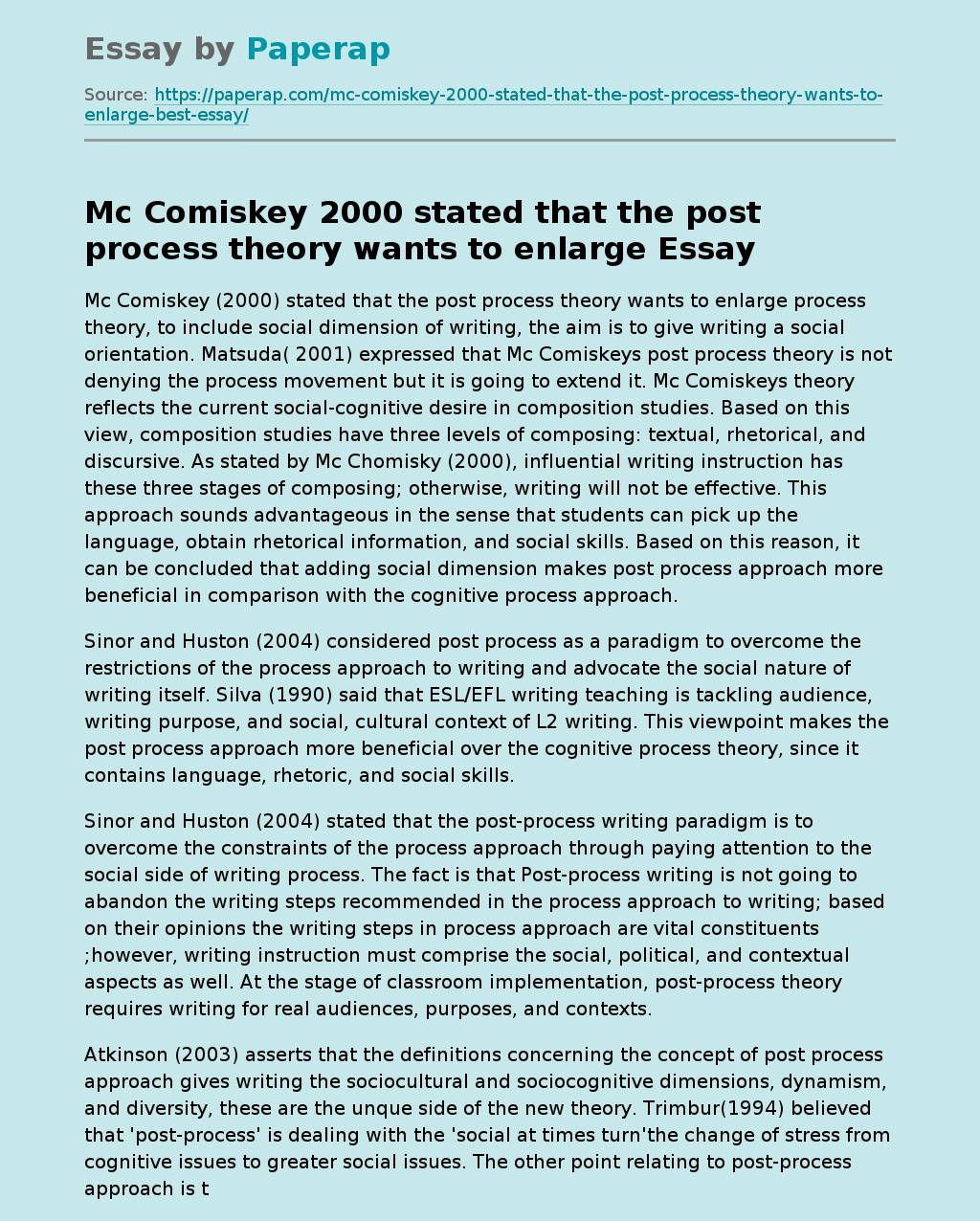Mc Comiskey 2000 stated that the post process theory wants to enlarge
Mc Comiskey (2000) stated that the post process theory wants to enlarge process theory, to include social dimension of writing, the aim is to give writing a social orientation. Matsuda( 2001) expressed that Mc Comiskeys post process theory is not denying the process movement but it is going to extend it. Mc Comiskeys theory reflects the current social-cognitive desire in composition studies. Based on this view, composition studies have three levels of composing: textual, rhetorical, and discursive. As stated by Mc Chomisky (2000), influential writing instruction has these three stages of composing; otherwise, writing will not be effective.
This approach sounds advantageous in the sense that students can pick up the language, obtain rhetorical information, and social skills. Based on this reason, it can be concluded that adding social dimension makes post process approach more beneficial in comparison with the cognitive process approach.
Sinor and Huston (2004) considered post process as a paradigm to overcome the restrictions of the process approach to writing and advocate the social nature of writing itself.
Silva (1990) said that ESL/EFL writing teaching is tackling audience, writing purpose, and social, cultural context of L2 writing. This viewpoint makes the post process approach more beneficial over the cognitive process theory, since it contains language, rhetoric, and social skills.
Sinor and Huston (2004) stated that the post-process writing paradigm is to overcome the constraints of the process approach through paying attention to the social side of writing process. The fact is that Post-process writing is not going to abandon the writing steps recommended in the process approach to writing; based on their opinions the writing steps in process approach are vital constituents ;however, writing instruction must comprise the social, political, and contextual aspects as well.
At the stage of classroom implementation, post-process theory requires writing for real audiences, purposes, and contexts.
Atkinson (2003) asserts that the definitions concerning the concept of post process approach gives writing the sociocultural and sociocognitive dimensions, dynamism, and diversity, these are the unque side of the new theory. Trimbur(1994) believed that ‘post-process’ is dealing with the ‘social at times turn’the change of stress from cognitive issues to greater social issues. The other point relating to post-process approach is the philosophical identity. Based on Kent ( 2011) some of the definitions regarding post process approach are derived from philosophy of language and semiotics, and some consider it as a unit of discourse (Trimbur and Press, 2011). Such features give it a poststructuralist quality.
The post process approach is truly realized through genre process writing. The genre-based approach aims to enable learners to write behind the writing classroom. Consequently; it considers its aim to empower learners to perform different types of social roles in writing, and choose certain genres in line with the students ends. As Bawarshi( 2003)proved the connection between genre and social setting is at the focal point of genre-study because social situations lead to genres.
Mc Comiskey 2000 stated that the post process theory wants to enlarge. (2019, Nov 18). Retrieved from https://paperap.com/mc-comiskey-2000-stated-that-the-post-process-theory-wants-to-enlarge-best-essay/

